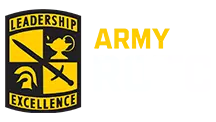Temple University Athletics

Alumni Spotlight: Geoffrey Ham
8.9.23 | General
This is the first in a series of spotlights on Temple Athletics alumni. The series will start with the 2023 Athletics Hall of Fame Class, which will be inducted the weekend of October 6-7.
A true American hero, Geoffrey Ham was one of the top men's fencers in Temple history. A four-year letterwinner on the fencing team, Ham capped his athletic career with a third-place finish at the NCAA Championship in epee to earn All-America honors. As a student-athlete, he led the Owls to the 1965 Middle Atlantic Conference Championship as a senior after helping the team to a runner-up finish the year before.
A four-year member of the ROTC rifle team at Temple, he would befriend a freshman, Wesley Craig, who would later become a Major General for the United States Army. Unfortunately, Ham would never live to see that day, as he served in the Vietnam War where, as a 1st Lieutenant, was killed in action on June 28, 1967, in the battle of DakTo.
The following is a story by Alan Phillips of The Temple News on Lt. Ham following his tragic death.
Late ROTC cadet was 'leader of men'
The air was hot and dry over New Dal To in south Vietnam's Central Highlands that June day.
Two companies of the 1st Cavalry Division moved the heavily vegetated and mountainous terrain 35 miles North of Pleiku and 45 miles east of the Laotian border in search of a North Vietnamese force reported in the area.
Suddenly, the hot air became hotter as the communist force opened fire on the "B" company. "A" company, some distance away, heard the gunfire but made no contact with the enemy that morning.
And "A" company continued its "search and destroy" mission on June 28, 1967. It found the North Vietnamese force, but soon was pinned down under the heavy communist fire. Orders came from the company commander for each platoon leader to group for a direct assault.
As the leader of the 2nd platoon was issuing his orders, a communist sniper some 200-500 yards away drew aim on him. The platoon leader, easy to identify because of his radio man nearby, fell dead.
The platoon leader was Lt. Geoffrey L. Ham, a 1965 University graduate who, at the age of 24, became the first Temple Reserve Officers Training Corps (ROTC) death of the Vietnam War.
Geoff was a born leader. It is a quality said of many but found in few. He was never content to be an also-ran, a second-stringer, or a follower. He was a leader of men.
M. Sgt, Jerome Reichlmayr, an ROTC instructor who knew Geoff for two years before he also left for a year in Vietnam in December 1964, said the young officer was "conscientious, aggressive and energetic. He was a determined youth to whom leadership fell naturally. I've known other men who had some of his qualities, but no one who had them all."
Sgt. Reichlmayr said Geoff excelled as a cadet. He was a squad leader as a sophomore, platoon leader and 1st sergeant as a junior, and company commander as a senior.
Geoff's leadership qualities came through much better as a company commander than they would have as an administrative chief in the ROOTC unit. He wanted to be with people and not be confined to a desk," the sergeant said.
Soft Spoken
The cadets under Geoff also thought highly of their soft-spoken friend, "He was a popular platoon leader and company commander who never had to raise his voice to have his orders followed," Sgt. Reichlmayr said.
Many cadets who served under and with Geoff attended his funeral last July in Valhalla, N.Y., some 35 miles north of New York City. Although from Ivyland in Bucks County, PA., Geoff was buried in New York because his father, Donald, was raised there and the young officer spent the early years of his life there.
Stephen Kayne, '64, now in the University School of Law, was a close friend of Geoff's from the time Geoff entered the University in 1961.
"He was my first sergeant when I was a company commander and he did a fine job; all the men liked him," Kayne said. "Geoff was trying to get the most out of life and always trying new things. He was never content with his accomplishments."
Another friend, Gaylord J. Conquest, '63, who recently returned from a year in Vietnam, said Geoff "was out to excel in ROTC activities."
Conquest, captain of the drill team, a member of Scabbard and Blade, the national military honor society, and president of the Reserve Officers Association (all organizations to which Geoff belonged), said he was "exceptional not only as a cadet but also as a person."
Sgt. Reichlamyr said, "Geoff could get the best of his men and they realized this. His style was not one of toughness or brute force, but rather of softness and cooperation. But nevertheless, his leadership was all-important to him."
The sergeant told of the time in Geoff's senior year when he chose the army branch in which he wanted to serve. Each cadet has three selections, and they range from service in the finance or adjutant general's divisions to a must selection in combat arms—infantry, armor and artillery.
"Most students select as their first choice the branch related to their college major," Sgt. Reichlmayr said. But Geoff checked off all three selections in combat arms. It was the only time I've ever seen anyone do that. I asked him why he selected the three most dangerous and toughest areas, especially when he was an accounting major and could have chosen finance. He replied that he wanted to be with the people, with the men at the front. He wanted to lead, and he knew he couldn't do it his way at a desk."
Sgt. Reichlmayr said Geoff was also a better-than-average student. He had an "A": average in ROTC and was recommended for Distinguished Military Student, an honor based on all-around academic and ROTC scholarship and summer camp excellence. It permits the cadet to apply for a commission in the regular army. However, Geoff did not plan a career in the military and did not apply for the commission.
All-American Type
Geoff did not confine his time at the University to ROTC activities. He was the all-around All-American type with so little free time that Kayne "wondered how he did it all." Geoff spent four years on the fencing team, earning All-America recognition as a senior; four years on the ROTC rifle team, helping to build its future, and many long hours tinkering with a car.
After graduation, he developed an avid interest in driving race cars, which led his father to say that after his son's stay in the army. He would have taken up the sport seriously.
The story behind Geoff's fencing career is an unusual one. He was built well for the sport; 5 feet 10, 150 pounds, slender and wiry with keen eyesight developed from years of rifle practice. But until he entered college, Geoff had never fenced.
Al Kelly, University fencing coach, said many inexperienced students come out for the sport, but few develop as quickly as Geoff did.
"I came to the University in Geoff's junior year," Kelly said. He and another boy were the only two epee-men with any experience. I knew he had entered the University with no fencing experience, but I soon saw that he lacked little polish."
Geoff won two-thirds of his matches in his first year.
The story of how Geoff won his All-America rating illustrates the drive and determination he was known for. At the end of his junior year, he competed in his first Middle Atlantic Conference championship. He finished third in a field of 12 despite having missed practice the two weeks prior to the tournament.
He again finished third in the M.A.C. the next year but was picked to represent the University in the national championships. His first day at the nationals was not his best, Kelly said, as he dropped five out of some 12 bouts. But his second day was the kind athletes dream of.
"That second day was really something. Geoff swept through the best collegiate fencers in the country by winning all of his bouts," Kelly explained.
The feat rocketed him from about 15th to fifth in the national rankings and earned for him second team All-America honors He was the first University All-America fencer in 18 years.
But Geoff's first love was a more modern weapon. "Since he was 12 or 14, he loved rifle shooting," said his father, an electrical engineer. "We gave him a .222 caliber, single-shot rifle for his 16th birthday and he practiced for hours on a nearby police shooting range."
Received Medals
He was a member of the National Rifle Association and won several medals from the group.
Geoff joined the ROTC rifle team as a freshman and captained it as a senior. Sgt. Reichlmayr said there was little interest in the team until Geoff and several fellows gathered support for it. Geoff's philosophy of shooting, expressed in the ROTC publication, "Diamond Torch" again illustrated his determination: "Perseverance will achieve success."
In the seven months after his graduation and before he entered the army, Geoff began a new hobby.
"He really wanted to race when he left the army."
His interest in the sport stemmed from his brother-in-law, who races as a hobby, his father added.
Geoff's father said his son might have discovered conflicting goals in himself when he returned. "He wanted to be a C.P.A. (certified public accountant), but he also wanted to race. However, he probably would have found time for both."
Planned Marriage
Geoff planned to get married after he returned from Vietnam, his father said; He was not formally engaged, but there was an understanding with the girl, a student at Ohio State University. Geoff had two sisters – one 23 and married and the other 17 and in high school. The Ham family moved to their Bucks County home in 1959, and Geoff graduated from Lower Moreland High School in 1961.
Geoff received his infantry officers basic training at Fort Bennington, Ga., in 1966. He then went to Fort Dix, N.J., from where he was to be transferred to Germany, However, his orders were changed, and his overseas assignment became Vietnam. He was there for three months.
"He requested assignment to Europe," his father said, "But was not unhappy about the change. When he came home last March for what proved to be his last visit, he put off telling us of the Vietnam assignment to the last day. Geoff didn't want to be a burden on people; he didn't want to alarm his mother. He played down the danger and emphasized the high percentage of men who return unhurt.
"It wasn't until I drove him to the airport (the last time he saw his son alive) that Geoff and I realized the strong probability of his never returning."
Sgt. Major Joseph Donohue, an ROTC instructor who served in Vietnam the summer, was within 100 yards of the 2nd platoon on June 28.
"I didn't see the sniper attack that killed Lt. Ham, but it came during a heavy assault on the enemy's position. The lieutenant was either kneeling or lying when he was struck; but he was leading his men."
Lt. Geoffrey L. Ham posthumously received the Bronze Star with the "V" for valor and the Purple Heart.
A true American hero, Geoffrey Ham was one of the top men's fencers in Temple history. A four-year letterwinner on the fencing team, Ham capped his athletic career with a third-place finish at the NCAA Championship in epee to earn All-America honors. As a student-athlete, he led the Owls to the 1965 Middle Atlantic Conference Championship as a senior after helping the team to a runner-up finish the year before.
A four-year member of the ROTC rifle team at Temple, he would befriend a freshman, Wesley Craig, who would later become a Major General for the United States Army. Unfortunately, Ham would never live to see that day, as he served in the Vietnam War where, as a 1st Lieutenant, was killed in action on June 28, 1967, in the battle of DakTo.
The following is a story by Alan Phillips of The Temple News on Lt. Ham following his tragic death.
Late ROTC cadet was 'leader of men'
The air was hot and dry over New Dal To in south Vietnam's Central Highlands that June day.
Two companies of the 1st Cavalry Division moved the heavily vegetated and mountainous terrain 35 miles North of Pleiku and 45 miles east of the Laotian border in search of a North Vietnamese force reported in the area.
Suddenly, the hot air became hotter as the communist force opened fire on the "B" company. "A" company, some distance away, heard the gunfire but made no contact with the enemy that morning.
And "A" company continued its "search and destroy" mission on June 28, 1967. It found the North Vietnamese force, but soon was pinned down under the heavy communist fire. Orders came from the company commander for each platoon leader to group for a direct assault.
As the leader of the 2nd platoon was issuing his orders, a communist sniper some 200-500 yards away drew aim on him. The platoon leader, easy to identify because of his radio man nearby, fell dead.
The platoon leader was Lt. Geoffrey L. Ham, a 1965 University graduate who, at the age of 24, became the first Temple Reserve Officers Training Corps (ROTC) death of the Vietnam War.
Geoff was a born leader. It is a quality said of many but found in few. He was never content to be an also-ran, a second-stringer, or a follower. He was a leader of men.
M. Sgt, Jerome Reichlmayr, an ROTC instructor who knew Geoff for two years before he also left for a year in Vietnam in December 1964, said the young officer was "conscientious, aggressive and energetic. He was a determined youth to whom leadership fell naturally. I've known other men who had some of his qualities, but no one who had them all."
Sgt. Reichlmayr said Geoff excelled as a cadet. He was a squad leader as a sophomore, platoon leader and 1st sergeant as a junior, and company commander as a senior.
Geoff's leadership qualities came through much better as a company commander than they would have as an administrative chief in the ROOTC unit. He wanted to be with people and not be confined to a desk," the sergeant said.
Soft Spoken
The cadets under Geoff also thought highly of their soft-spoken friend, "He was a popular platoon leader and company commander who never had to raise his voice to have his orders followed," Sgt. Reichlmayr said.
Many cadets who served under and with Geoff attended his funeral last July in Valhalla, N.Y., some 35 miles north of New York City. Although from Ivyland in Bucks County, PA., Geoff was buried in New York because his father, Donald, was raised there and the young officer spent the early years of his life there.
Stephen Kayne, '64, now in the University School of Law, was a close friend of Geoff's from the time Geoff entered the University in 1961.
"He was my first sergeant when I was a company commander and he did a fine job; all the men liked him," Kayne said. "Geoff was trying to get the most out of life and always trying new things. He was never content with his accomplishments."
Another friend, Gaylord J. Conquest, '63, who recently returned from a year in Vietnam, said Geoff "was out to excel in ROTC activities."
Conquest, captain of the drill team, a member of Scabbard and Blade, the national military honor society, and president of the Reserve Officers Association (all organizations to which Geoff belonged), said he was "exceptional not only as a cadet but also as a person."
Sgt. Reichlamyr said, "Geoff could get the best of his men and they realized this. His style was not one of toughness or brute force, but rather of softness and cooperation. But nevertheless, his leadership was all-important to him."
The sergeant told of the time in Geoff's senior year when he chose the army branch in which he wanted to serve. Each cadet has three selections, and they range from service in the finance or adjutant general's divisions to a must selection in combat arms—infantry, armor and artillery.
"Most students select as their first choice the branch related to their college major," Sgt. Reichlmayr said. But Geoff checked off all three selections in combat arms. It was the only time I've ever seen anyone do that. I asked him why he selected the three most dangerous and toughest areas, especially when he was an accounting major and could have chosen finance. He replied that he wanted to be with the people, with the men at the front. He wanted to lead, and he knew he couldn't do it his way at a desk."
Sgt. Reichlmayr said Geoff was also a better-than-average student. He had an "A": average in ROTC and was recommended for Distinguished Military Student, an honor based on all-around academic and ROTC scholarship and summer camp excellence. It permits the cadet to apply for a commission in the regular army. However, Geoff did not plan a career in the military and did not apply for the commission.
All-American Type
Geoff did not confine his time at the University to ROTC activities. He was the all-around All-American type with so little free time that Kayne "wondered how he did it all." Geoff spent four years on the fencing team, earning All-America recognition as a senior; four years on the ROTC rifle team, helping to build its future, and many long hours tinkering with a car.
After graduation, he developed an avid interest in driving race cars, which led his father to say that after his son's stay in the army. He would have taken up the sport seriously.
The story behind Geoff's fencing career is an unusual one. He was built well for the sport; 5 feet 10, 150 pounds, slender and wiry with keen eyesight developed from years of rifle practice. But until he entered college, Geoff had never fenced.
Al Kelly, University fencing coach, said many inexperienced students come out for the sport, but few develop as quickly as Geoff did.
"I came to the University in Geoff's junior year," Kelly said. He and another boy were the only two epee-men with any experience. I knew he had entered the University with no fencing experience, but I soon saw that he lacked little polish."
Geoff won two-thirds of his matches in his first year.
The story of how Geoff won his All-America rating illustrates the drive and determination he was known for. At the end of his junior year, he competed in his first Middle Atlantic Conference championship. He finished third in a field of 12 despite having missed practice the two weeks prior to the tournament.
He again finished third in the M.A.C. the next year but was picked to represent the University in the national championships. His first day at the nationals was not his best, Kelly said, as he dropped five out of some 12 bouts. But his second day was the kind athletes dream of.
"That second day was really something. Geoff swept through the best collegiate fencers in the country by winning all of his bouts," Kelly explained.
The feat rocketed him from about 15th to fifth in the national rankings and earned for him second team All-America honors He was the first University All-America fencer in 18 years.
But Geoff's first love was a more modern weapon. "Since he was 12 or 14, he loved rifle shooting," said his father, an electrical engineer. "We gave him a .222 caliber, single-shot rifle for his 16th birthday and he practiced for hours on a nearby police shooting range."
Received Medals
He was a member of the National Rifle Association and won several medals from the group.
Geoff joined the ROTC rifle team as a freshman and captained it as a senior. Sgt. Reichlmayr said there was little interest in the team until Geoff and several fellows gathered support for it. Geoff's philosophy of shooting, expressed in the ROTC publication, "Diamond Torch" again illustrated his determination: "Perseverance will achieve success."
In the seven months after his graduation and before he entered the army, Geoff began a new hobby.
"He really wanted to race when he left the army."
His interest in the sport stemmed from his brother-in-law, who races as a hobby, his father added.
Geoff's father said his son might have discovered conflicting goals in himself when he returned. "He wanted to be a C.P.A. (certified public accountant), but he also wanted to race. However, he probably would have found time for both."
Planned Marriage
Geoff planned to get married after he returned from Vietnam, his father said; He was not formally engaged, but there was an understanding with the girl, a student at Ohio State University. Geoff had two sisters – one 23 and married and the other 17 and in high school. The Ham family moved to their Bucks County home in 1959, and Geoff graduated from Lower Moreland High School in 1961.
Geoff received his infantry officers basic training at Fort Bennington, Ga., in 1966. He then went to Fort Dix, N.J., from where he was to be transferred to Germany, However, his orders were changed, and his overseas assignment became Vietnam. He was there for three months.
"He requested assignment to Europe," his father said, "But was not unhappy about the change. When he came home last March for what proved to be his last visit, he put off telling us of the Vietnam assignment to the last day. Geoff didn't want to be a burden on people; he didn't want to alarm his mother. He played down the danger and emphasized the high percentage of men who return unhurt.
"It wasn't until I drove him to the airport (the last time he saw his son alive) that Geoff and I realized the strong probability of his never returning."
Sgt. Major Joseph Donohue, an ROTC instructor who served in Vietnam the summer, was within 100 yards of the 2nd platoon on June 28.
"I didn't see the sniper attack that killed Lt. Ham, but it came during a heavy assault on the enemy's position. The lieutenant was either kneeling or lying when he was struck; but he was leading his men."
Lt. Geoffrey L. Ham posthumously received the Bronze Star with the "V" for valor and the Purple Heart.
Ep. 8: Temple Athletics Weekly Recap; Women's Cross Country Runner Amelia Sabatino
Tuesday, September 30
Ep. 7: Temple Field Hockey Alumna Cherifa Howarth
Friday, September 26
Ep. 6: Temple Athletics Weekly Recap; Field Hockey's Peyton Rieger
Tuesday, September 23
Temple Men's Basketball | Mic'd Up at Temple Women's Volleyball Game
Friday, September 19











